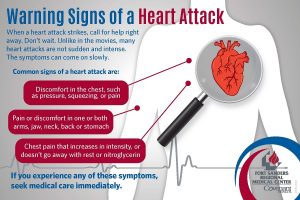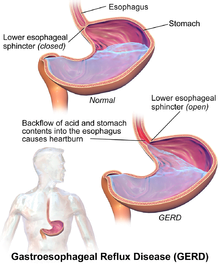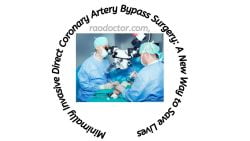Chest pain-how to know if you are having a heart attack
 Introduction
Introduction
Chest pain is something which we all must have experienced some time or the other. Sometimes it can be the beginning of something sinister, like for example, the first signs of an impending Heart Attack.
In my 35 years of Medical Practice, I have come across many patients who complained of chest pain and were quite worried about it. Most of them were not very serious to cause panic, but some were serious enough to warrant hospitalization.
Many of us have had chest pain one time or the other and I am sure that most of you and your loved ones must have been scared to death that it must be a heart attack. Yes, it may be or maybe not. In this article, I am going to guide you to decipher that chest pain, and if it is one of those things that you have, here’s what to do. Read on:
1.Chest pain caused by Costo-chondritis
One patient visited my Clinic with a complaint of chest pain in the left half of the chest which aggravated on movement, bending forward and stretching the arms. I examined the patient. His pulse and heart sounds were normal, there was no sweating, BP was also normal and all other chest sounds like breath sounds were also normal. One putting pressure on the just left of the center of the chest, the patient cringed with pain.
What was this? Well, this is a condition caused due to the swelling of the joint of ribs with the central chest bone called the sternum and is called Costo-chondritis. On inquiry, the patient gave a history of lifting a heavy object 1 week back. This is what led to swelling of one of the costochondral joints and subsequently the pain after about 1 week. This is a fairly common condition causing chest pain and can be treated by hot fomentation and anti-inflammatory tablets.
2.The Rib fracture chest pain
A patient came to my clinic one day with a complaint of swelling and chest pain on the left side, aggravated by breathing. On examination, I could see a purple swelling at the site of pain. He had an accident the day before while driving a two-wheeler. X-ray chest was advised which showed fractured ribs. He was referred to the orthopedic surgeon for further treatment.
Treatment-
The ortho surgeon may
- apply a compression bandage or a sleeve to reduce movement due to breathing. This will automatically reduce pain.
- Other than that an antiinflammatory pain killer like a combination of Diclofenac sodium +Serratiopeptidase[Emanzen-D] or diclofenac+Trypsin-chymotrypsin+rutoside[Inflachek-D] may help in healing.
- Calcium tablets to heal and breach the gap in the fractured bone ends.
3. Chest pain of the Pleuritis
Inside our chest, we have 2 major organs- the lungs and the heart. The lungs are enclosed by 2 layers covering called pleura. In between inner[visceral] and outer[parietal] pleura, there is the pleural space that contains a fluid that helps lubrication when the lungs expand and contract while breathing. Sometimes due to some infections of the lungs, there is inflammation of the pleura, which has sensory nerves, which causes pain in breathing. This inflammation is called pleuritis. The picture shown above shows how the pleura looks after getting inflamed. Treatment is with antibiotics and anti-inflammatory drugs under supervision at the hospital.
Treatment-
Your doctor may suggest-
- Antibiotics like a combination of Cefpodoxime+Calvulinic acid[Oxypod CV 200] to reduce infection.
- The anti-inflammatory combination as mentioned above to reduces pain and inflammation of pleura.
4.The Pneumothorax
Just as in pleuritis, there is a condition where the air gets trapped in between the pleura. This occurs suddenly with severe pain. The lungs on that side collapse and the patient become breathless. This patient needs urgent admission to the hospital for the removal of the trapped air.
Treatment-
Your attending physician on admission to the hospital may –
- Aspiration of air by needle and syringe
- Tube drainage-wherein one end of a tube or an intercostal catheter is inserted into the pleural cavity and the end inserted into a bottle containing water to remove the trapped air, as shown below-
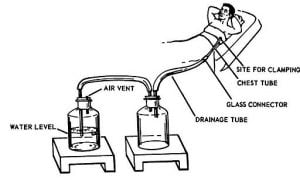
5.The Pericarditis
The human heart has a protective cover called the pericardium. It has 2 layers. When there is inflammation of the pericardium due to infection or in a heart attack, it is called Pericarditis. As the heart is pumping blood non- stop, there is rubbing of the 2 layers of the pericardium leading to a pain similar to a heart attack. There will be ECG changes also.
Treatment-
Thi is done by getting admitted to a hospital under a cardiologist.
6. Chest pain due to Angina Pectoris
Angina Pectoris chest painThis is the most common chest pain of the heart which is a precursor to the heart attack. This pain occurs due to the insufficiency of blood supply to the heart muscle due to a block developing in the coronary [heart] arteries, which supply oxygen to the heart muscle. The pain occurs mostly on exertion and reduces on resting. Accordingly, there are two types of angina pains, viz., A] Stable angina; B] Unstable angina.
In Stable angina, the chest pain disappears on resting but in Unstable angina, the pain persists even at rest. Your doctor might give you a nitroglycerine tablet to be kept under the tongue, which dilates the arteries and improves blood supply to the heart muscle.
7.The Heart Attack
This is by far the most terrifying pain in the chest. The patient complains of severe crushing pain in the center of the chest just behind the breast bone, followed by excessive sweating, nausea/ vomiting, and passing of stools without knowing it. Here he/ she may also complain of giddiness. His or her BP my be high or low. The treatment is the same as for pericarditis i.e. admission in a hospital where the Intensive Cardiac Care Unit is available.
For more on Heart attack, read here[link]
How can a patient with heart attack present-
Years ago, I had the experience of a patient with a Heart Attack. Unfortunately, he did not survive. Read about that experience in this article-[ link]
You can also listen to this interesting podcast on heart disease here-
8.The Aortic Aneurysm/Dissection chest pain
Aorta is a major blood vessel in the chest which supplies blood to all parts of the body through various branches. Diseases like tertiary syphilis[ a type of sexually acquired disease] can cause infection in the wall of the Thoracic aorta[part of aorta present in the chest], which, due to continuous pumping activity of the heart becomes thin and forms a balloon-like defect in the aorta, as shown below. If it goes unnoticed, it can burst which causes severe pain and death in most of the cases. If it is somehow detected accidentally on an investigation like echocardiography, surgery can prevent further events and save the life of the patient.
9.The Pulmonary embolism
This is a condition that occurs in a patient who has got a clot in the veins of the lower or upper limbs [also termed Deep Vein Thrombosis or DVT] and which got released in the venous circulation and got carried to the pulmonary ( lung) circulation. This is called embolism and leads to severe chest pain and lung infarction, that is, the death of that part of the lung. DVT of the lower limbs is common in hospitalized patients and in pregnancy. Again, this is an emergency and needs admission to the hospital for further treatment.
10.The Pneumonitis
Just before someone gets affected by pneumonia, there occurs swelling of the lungs parenchyma( lung tissue) and it appears like a haze in the x-ray. There is swelling of the airways leading to chest pain at this stage and later on, it leads to pneumonia. The above picture shows the changes in airways due to pneumonitis. This can happen as an allergy to inhaled chemicals, smoke, dust, etc. Your doctor will help you to get relief from pain and further progression of the disease.
11.The Oesophagitis chest pain
The food we eat passes to the stomach through a food pipe called the esophagus. When there is reflux of acid from the stomach into the esophagus[also known as GASTROESOPHAGEAL REFLUX DISEASE OR GERD], the inner lining of the food pipe gets inflamed.
This gives rise to a burning sensation and pain in the chest. The picture shown above explains how GERD occurs. This sort of pain is also called heartburn because it mimics a heart attack. Treatment consists of ruling out a heart attack and taking antacids advised by the attending physician.
- These are a few common but important causes of chest pain. There are many more causes such as cervical spondylitis, TB of the thoracic spine, herpes infection[shingles], etc. These causes are too vast to discuss presently and will be dealt with separately in future blogs.
- Kindly do not try treatment such as taking antacids. Contact your health provider or family physician and he/she will guide you properly.
For more on chest pain click this link
You may use my comments section to contact me if there are any queries.


 Introduction
Introduction
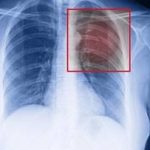
![CHEST PAIN-HOW TO KNOW IF YOU ARE HAVING A HEART ATTACK OR NOT 5 Chest pain due to inflammation of the covering of lungs[pleura]](https://raodoctor.com/wp-content/uploads/2019/08/Pleurisy-300x221.jpg)



